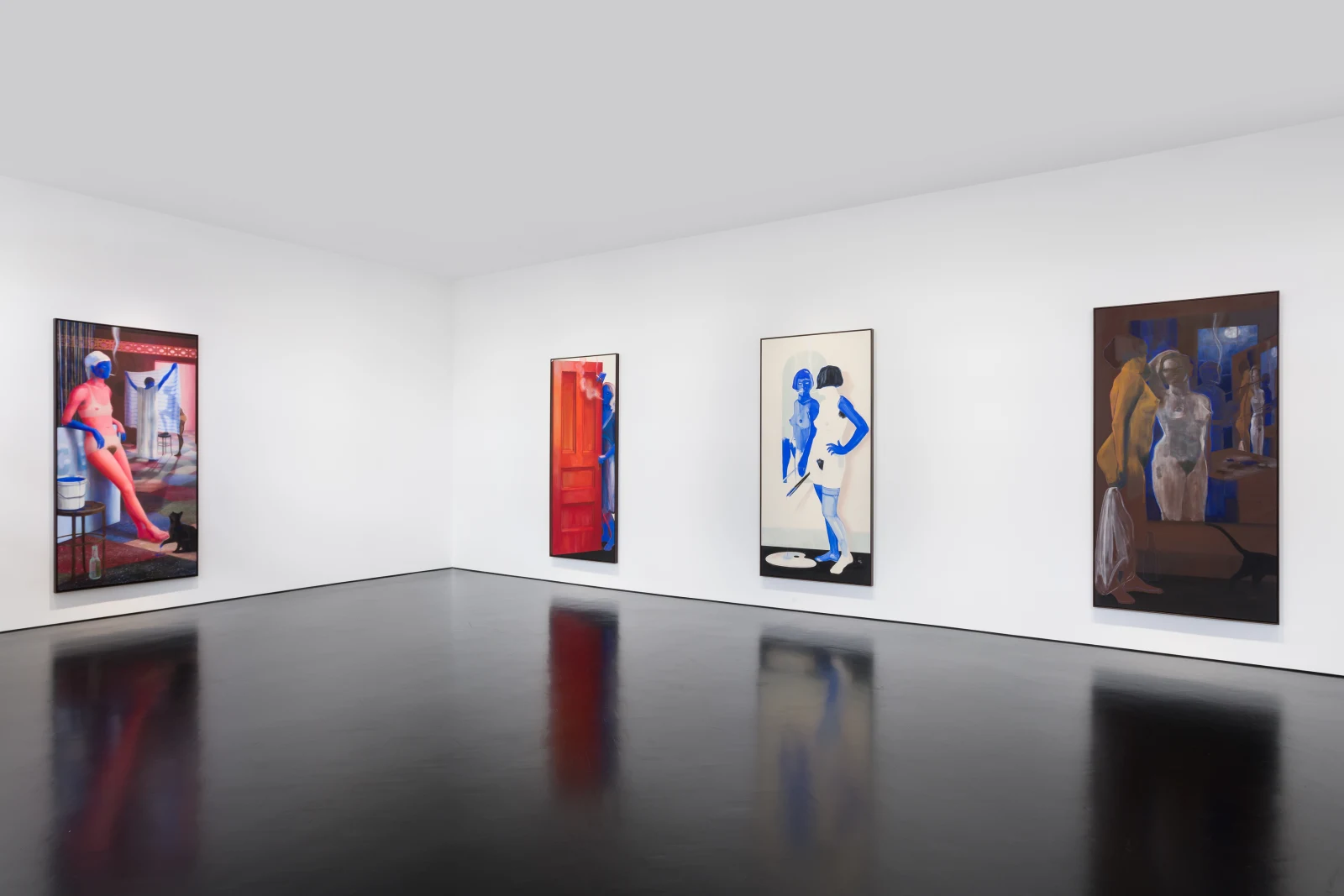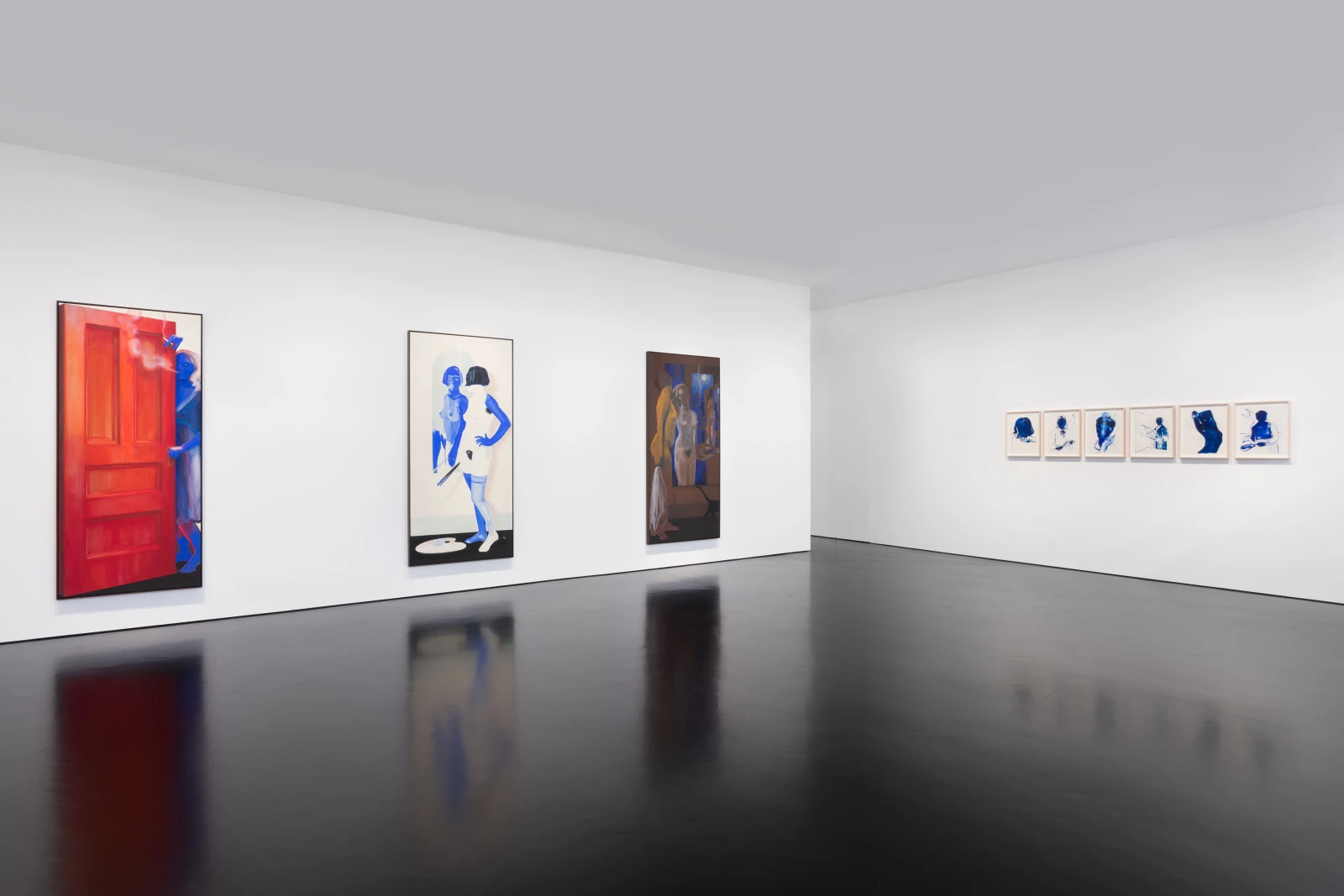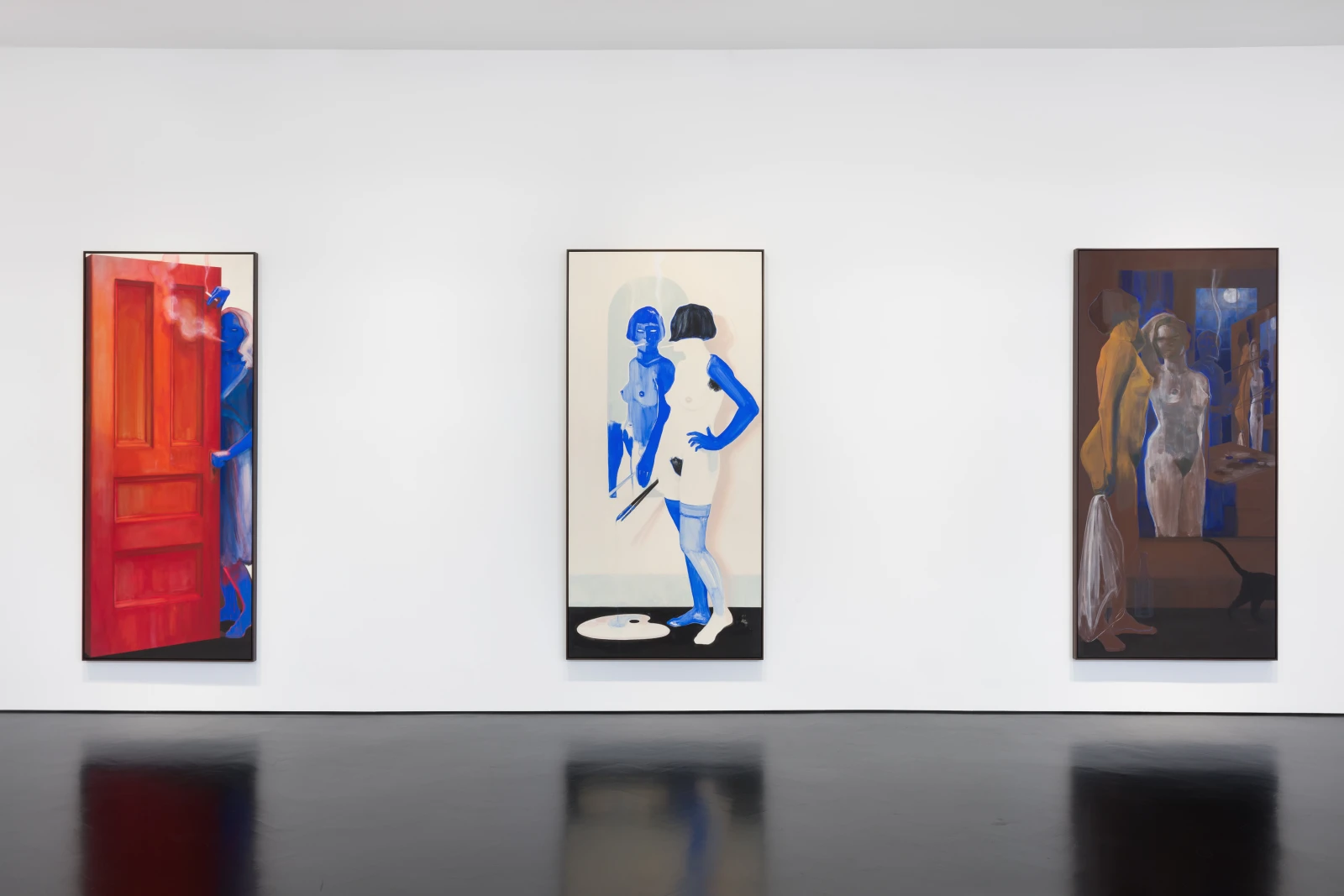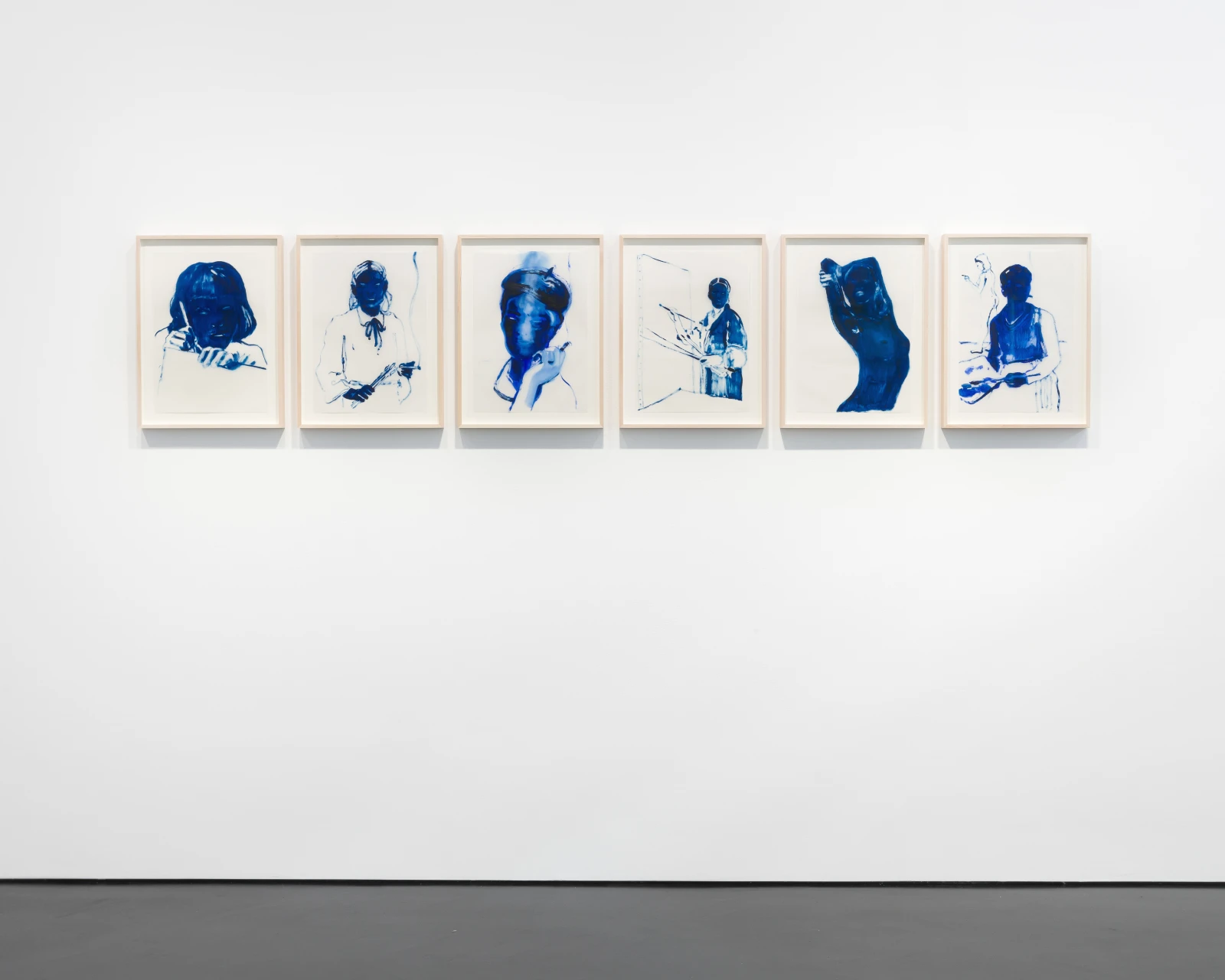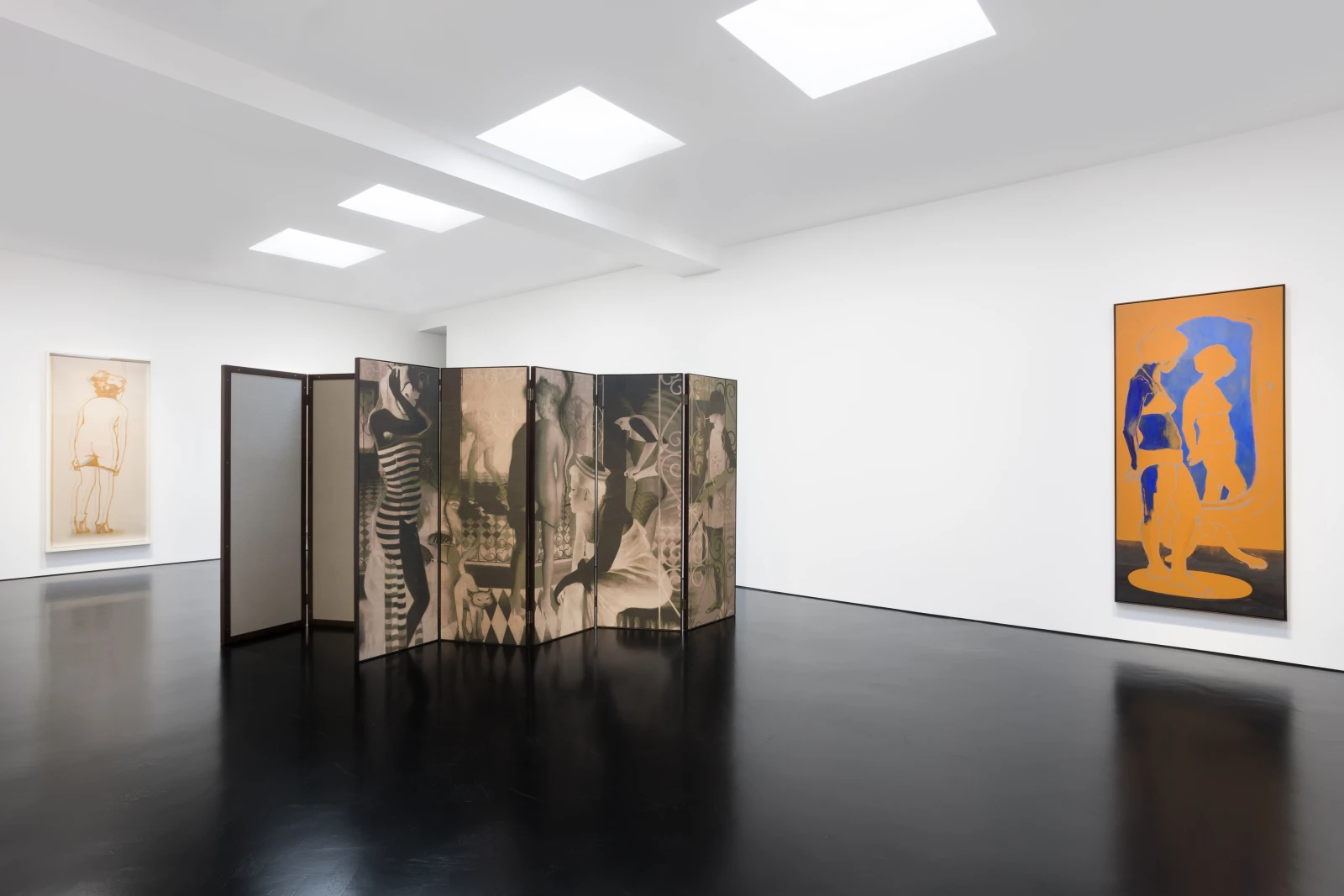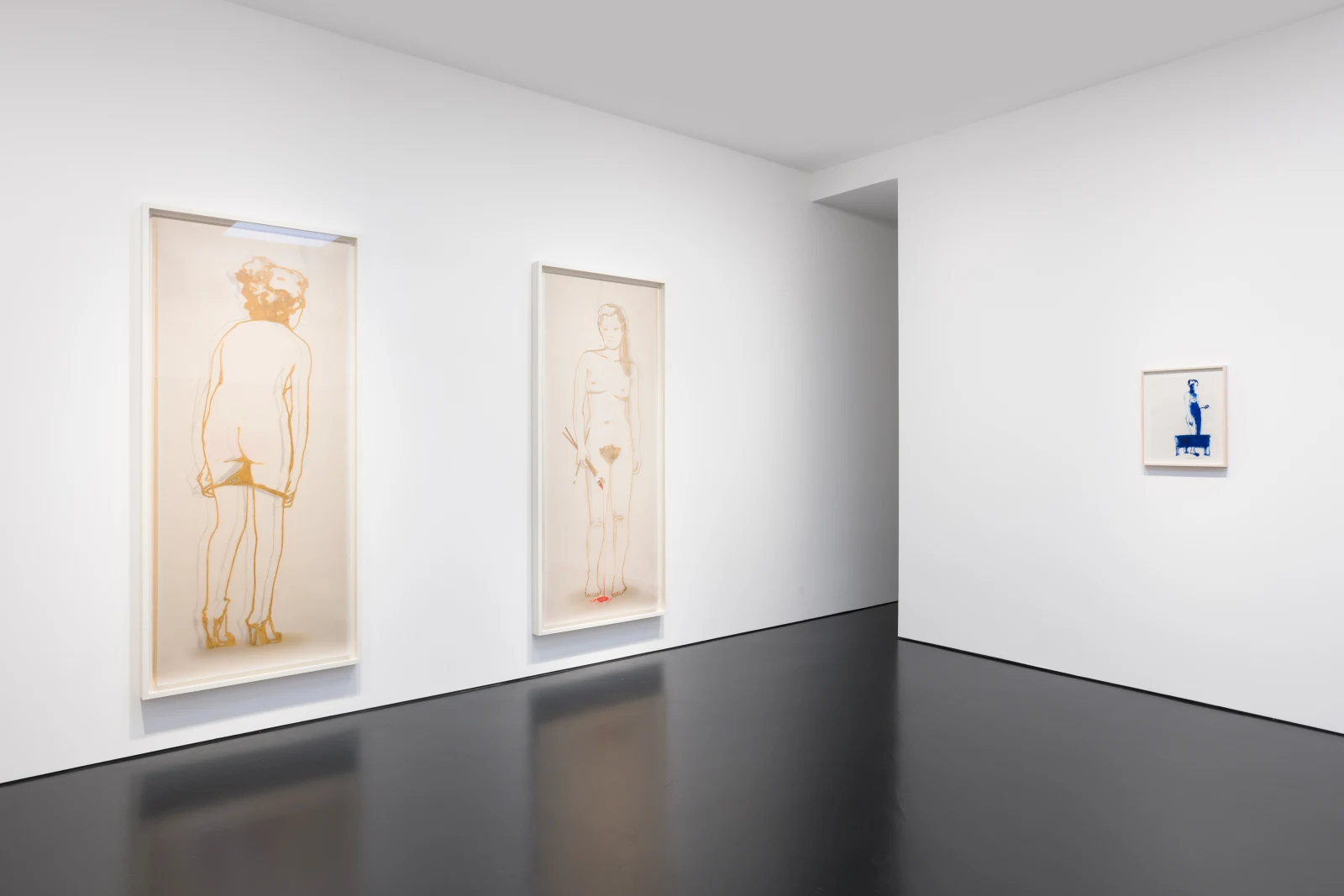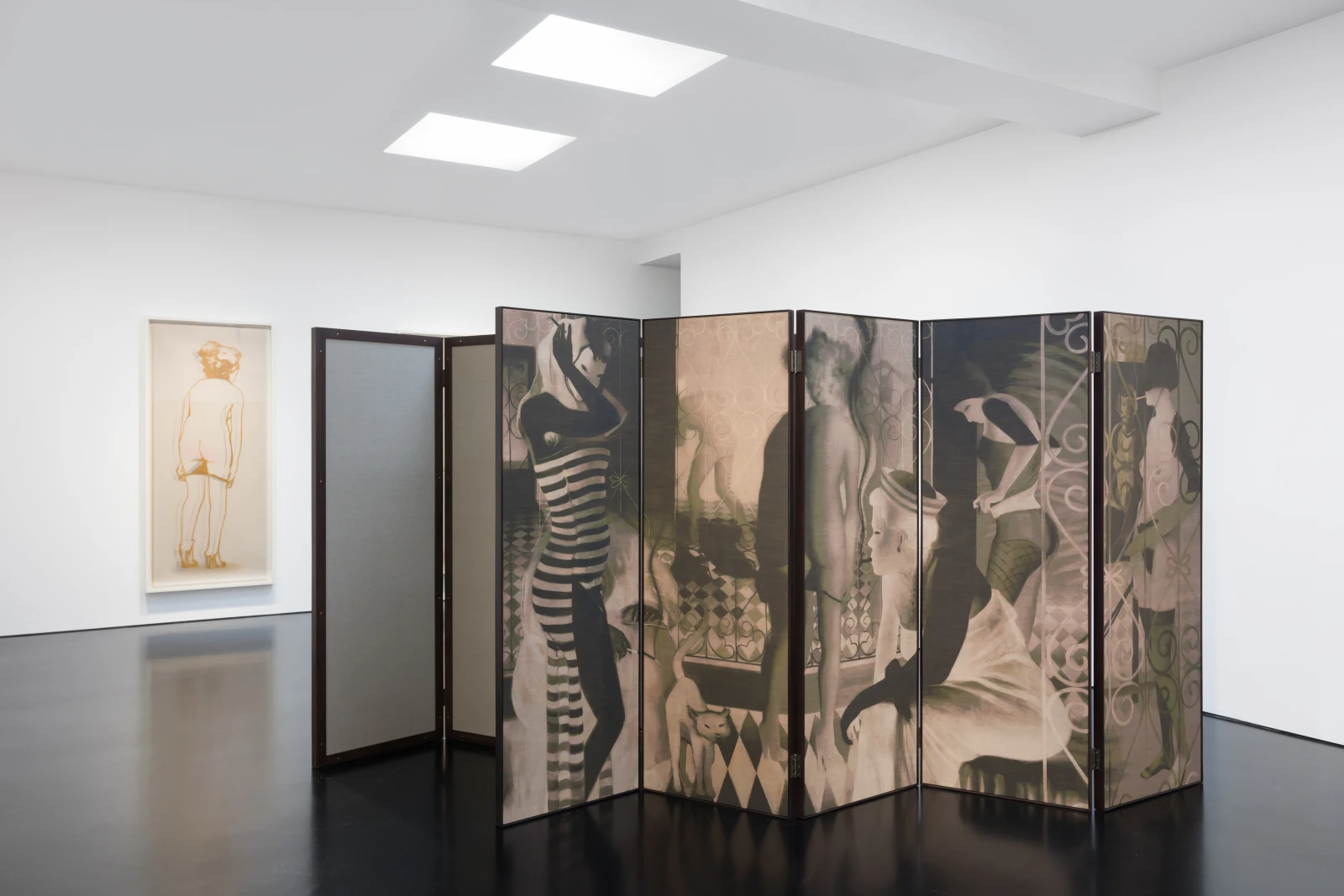
Lisa Brice
Overview
Brice's new work continues her interrogation of the male gaze by challenging and reinterpreting traditional depictions of the female nude from the perspective of a female artist.
Stephen Friedman Gallery is pleased to present a solo exhibition of new paintings and works on paper by South African artist Lisa Brice. This will mark the second show at the gallery for the London-based artist and follows her highly acclaimed solo exhibition in 2018 at Tate Britain. The exhibition will be accompanied by a booklet and commissioned essay by Laura Smith, Curator at Whitechapel Gallery, London.
Brice's new work continues her interrogation of the male gaze by challenging and reinterpreting traditional depictions of the female nude from the perspective of a female artist. Brice contests the misogynistic nature of historical figuration typically painted by white men for white men and takes ownership over how women are portrayed. Working within the parameters of art history, Brice echoes iconic compositions by artists such as Degas, Manet and Picasso, but instead lends her muses agency and self-possession. The interiors draw on Brice's personal experience from living and working between South Africa, London and Trinidad over the past 20 years.
Stephen Friedman Gallery is pleased to present a solo exhibition of new paintings and works on paper by South African artist Lisa Brice. This will mark the second show at the gallery for the London-based artist and follows her highly acclaimed solo exhibition in 2018 at Tate Britain. The exhibition will be accompanied by a booklet and commissioned essay by Laura Smith, Curator at Whitechapel Gallery, London.
Brice's new work continues her interrogation of the male gaze by challenging and reinterpreting traditional depictions of the female nude from the perspective of a female artist. Brice contests the misogynistic nature of historical figuration typically painted by white men for white men and takes ownership over how women are portrayed. Working within the parameters of art history, Brice echoes iconic compositions by artists such as Degas, Manet and Picasso, but instead lends her muses agency and self-possession. The interiors draw on Brice's personal experience from living and working between South Africa, London and Trinidad over the past 20 years.
Repudiating the gaze of the viewer, formal devices such as mirrors, smoke and metal grilles veil her subjects. In a significant development by the artist, Brice has also produced a number of large-scale, hand-painted, folded screens that physically break up the exhibition space to obscure key sightlines. Ironically, such changing screens were traditionally used in artists' studios to give nude models privacy whilst undressing. These freestanding paintings depict groups of women socialising with one another in an ambiguous studio setting and liberated from their former isolation as objectified muses. Brice's use of vermillion and cobalt blue in many of the works obscures the naturalistic skin tones of the body to further discourage an easy ‘read' of the female form.
Images of female empowerment populate Brice's new paintings and works on paper. ‘Untitled' depicts a naked woman in stockings standing before a mirror, armed with a dripping paintbrush and with a cigarette dangling from her lips. Defiant rather than vulnerable, she stares at her reflection and in turn directly into the eyes of the viewer. Here roles are reversed as the model now assumes the unconventional position of the artist. Unfinished brushstrokes and a discarded palette at her feet suggest that she is at liberty to depict herself as she wants. Other paintings provide direct access into the studio, a private space for creativity now stripped of its masculine associations. Instead of being transformed into allegorical figures, the models in Brice's paintings are now subjected to the ‘female gaze' as she explores the potency of self-representation.
Examining notions of liminality, Brice's paintings play with the dimensions and format of doorways and emphasise the immediacy of our encounter with her muses as we address them face-to-face. One such model is obscured behind a striking red door. Whether she is refusing or granting entry remains unclear yet her unflinching gaze and accusatory stance assert her power. Brice is interested in such threshold spaces where transitional states of being come into play; interior and exterior, public and private, artist and model.
Lisa Brice was born in 1968 in Cape Town, South Africa. In 2018, Brice had a solo exhibition at Tate Britain, London as part of their Art Now series. Brice will have a major institutional exhibition in the Netherlands in late 2020.
Other solo exhibitions include ‘Lisa Brice', Stephen Friedman Gallery, London, UK (2017); ‘Boundary Girl', Salon 94, New York (2017) and ‘Well Worn', Goodman Gallery, Johannesburg, South Africa (2015). Notable group exhibitions include ‘Artists I Steal From', Galerie Thaddaeus Ropac, London, UK (2019); ‘La Diablesse', Tramps, London, UK (2016); ‘Home Truths: Domestic Interior in South African Collections' curated by Michael Godby, South African National Gallery, Cape Town, South Africa (2016) and ‘Making & Unmaking', Camden Arts Centre, London, UK (2016).
Brice's works are featured in prominent collections including Smithsonian National Museum of African Art, Washington D.C., USA; BHP Billiton Collection, Johannesburg, South Africa; SABC Collection, South Africa; Johannesburg Art Gallery, Johannesburg, South Africa; South African National Gallery, Cape Town, South Africa; Michaelis Cabinet, University of Cape Town, South Africa; Gallery Frank Haenel, Frankfurt, Berlin, Germany; South African High Commission, London, UK and Sindika Dokolo - African Collection of Contemporary Art, Luanda, Angola.
For more information, please contact info@stephenfriedman.com.
For press enquiries, please contact Carlotta Dennis-Lovaglio at carlotta@scott-andco.com.
Brice's new work continues her interrogation of the male gaze by challenging and reinterpreting traditional depictions of the female nude from the perspective of a female artist.
Installation Views
